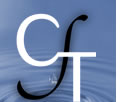 |
||||||||||
Critical Thinking, Enlightenment, and Pedagogy
This article was originally published in the Fall 1999 issue of the CFT's newsletter, Teaching Forum.
By Nick Smith
Meek young men grow up in libraries, believing it their duty to accept the views which Cicero, which Locke, which Bacon, have given, forgetful that Cicero, Locke, and Bacon were only young men in libraries when they wrote these books. Hence, instead of Man Thinking, we have the bookworm.
--Ralph Waldo Emerson, The American Scholar .
Reason transformed into prejudice is the worst form of prejudice, because reason is the only instrument for liberation from prejudice.
--Allan Bloom, The Closing of the American Mind .
Now held in the highest estimation by all disciplines, critical thinking has surpassed even truth as the premier pedagogical objective. Whereas professors once aspired to fill the empty vessels sitting in their lecture halls with timeless and universal knowledge, many of us no longer even attempt to teach our students truth. When all particular truths become untrustworthy, our intellectual faith migrates to more fundamental cognitive bedrock, namely, reason itself, and as teachers we come to believe that students will receive greater benefits from developing and exercising their own muscles of reason than by memorizing the feats of history's biggest brains. What might explain this reversal of pedagogical priorities?
Perhaps we can attribute this phenomenon, like so many other central aspects of modernity, to Immanuel Kant. His 1784 What is Enlightenment?--a seven page "declaration of independence" for the open mind--opens with the rallying cry for critical thinking: "Enlightenment is man's release from his self-incurred tutelage." "Tutelage," he explains, "is man's inability to make use of his understanding without direction from another." Kant diagnosed the spread of a plague of deference to those whom we now call experts: we look to our pastor for moral guidance, our doctor for dietary guidance, our banker for financial guidance, and the professional critic for aesthetic guidance. As a result, we merely obey answers offered by law, science, or religion, the "fetters of an everlasting tutelage," and become "placid" and "dumb cattle" who cannot think for ourselves. "I need not think" Kant writes, "if I can only pay."
"Self-incurred is this tutelage," he goes on, "when its cause lies not in lack of reason but in lack of resolution and courage to use it without direction from another." Self-incurred tutelage, therefore, is nothing more than the fear of using one's own capacities to reason, and Enlightenment is out release from this affliction that paralyzes our cognitive faculties. Once freed from the fear of and obedience to law given by others, human or divine, we may then look beyond what we have been told and into what we think.
This story leaves the teacher with a difficult task. According to Kant's theory of Enlightenment, no combination of facts, formulas, texts, or theories can by itself wean students from their self-incurred tutelage and dependence on the authority of others. These standard teaching resources only offer students new laws to abide by, transferring their guardianship to a new master. The question then becomes how we, as teachers, can be allies to students in their own pursuit of intellectual freedom and Enlightenment. How con we set the self-perpetuating wheel of thought into motion?
Once this initial question has been posed, the research levee breaks and studies proliferate in search of definite answers to the questions of critical thinking and pedagogy: What questions most effectively provoke us to think critically? Why these questions? What is it about the methodology of the person or the thing that asks the question that sparks interest and personal challenge? Why does this question, posed by this person in this context, encourage critical thinking?
But now, as soon as answers to the questions of how to properly foster critical thinking are posited, we must extend our consideration to three higher orders of thought. First, Kant's edict now must be directed at teachers as well as students. Are we just as tempted to blindly follow the given laws of critical thinking as our students are inclined to default to the answers we provide? Can even critical thinking be guided by heteronomous, non-self-governing laws?
Second, and here we test our own mettle against the texts many of us teach, have we thought critically about critical thinking? Why are we so universally enamored of critical thinking? Have we, in our own indoctrination into academic life, uncritically entered into the cult of critical thinking? Have we thought through the merits of critical thinking against other models of knowing, or have we simply assumed the modus operandi that we are rewarded for by the institution to which we belong?
Third, we turn our critical eye upon our own practice of inquiry, and here reason and critical thinking seem to reassert their efficacy and ubiquity. As soon as we ask if we have thought critically about critical thinking, and the accompanying practical questions regarding what enabled or inhibited our investigation, the redundancy of the phrasing of the question points us to precisely Kant's, and now Jürgen Habermas', simple and powerful claim: How can we think critically about critical thinking without presuming the validity of critical thinking itself? When we think critically against critical thinking, argue against argument, or criticize criticism, our very activity demonstrates the power of our object of study. We demonstrate and affirm the veracity of thinking as we perform an interrogation of it. This, in T.W. Adorno's sentiments, is the process of the Enlightenment becoming Enlightened about itself.
And so again where does this leave the teacher, except with more questions, perhaps the first of which being whether we can teach, with any integrity whatsoever, without believing in some form of Enlightenment?
HOME | ABOUT CFT | PROGRAMS | SERVICES | RESOURCES
Center for Teaching |
General Questions? Web Site Questions? Copyright ©2009 |
